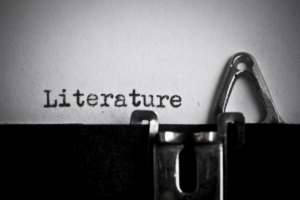Dark Academia is a cultural and aesthetic movement that draws heavily from the intellectual, artistic, and often melancholic elements of academic life. Rooted in classical literature, philosophy, and art, it celebrates a romanticized version of academia, where knowledge is sought not only for practical purposes but for the pursuit of deeper meaning. This aesthetic has found a profound expression in various forms of art, none more captivating than poetry.
For Dark Academia enthusiasts, poetry becomes an avenue for exploring themes of existentialism, melancholy, beauty in decay, and the human experience in its most introspective form. The genre provides a space where emotions are not only examined but also distilled into powerful verses that resonate with the heart and mind. In a world where the academic pursuit is sometimes seen as cold or purely logical, poetry brings warmth and emotion, enabling readers to engage with profound thoughts and complex ideas on a deeply personal level.
Poetry in Dark Academia serves as a bridge between the intellectual and the emotional, providing a voice for the melancholic beauty of life’s fleeting nature. For those immersed in this subculture, poems often evoke nostalgia for the past, question societal norms, and delve into personal struggles. It is a reflection of the longing for meaning, an exploration of love, loss, and death—topics that are timeless in the academic world.
In this article, we will explore ten poetry collections that have captured the hearts and minds of Dark Academia enthusiasts. Each collection, through its unique voice, style, and thematic exploration, offers something that aligns perfectly with the intellectual curiosity, emotional depth, and introspective nature that defines the movement. Whether it’s the haunting words of Edgar Allan Poe or the raw emotion of Sylvia Plath, these collections will draw you deeper into the world where academia meets the soul.
Dark Academia not only romanticizes the pursuit of knowledge but also immerses itself in the somber beauty of life’s complexities. For many, the aesthetic embodies an intellectual rebellion against the mundane, celebrating a life of profound thought and introspection. This passion for deep reflection often finds its most poetic expression in the written word, where language is used as a tool to explore the human condition. Through the lens of Dark Academia, poetry becomes a powerful medium for not just examining the world, but for capturing its impermanence and the fleeting moments of beauty in everyday life.
Poetry in this context is more than just a form of artistic expression; it becomes a conversation between the past and present, where ancient philosophies and modern struggles intersect. The words of poets, like whispers from another time, invite readers into a space where they can confront their own vulnerabilities and discover a deeper connection with themselves and the world around them. It is through this dialogue between past and present that Dark Academia’s poetic works continue to resonate with individuals seeking meaning beyond the surface.
For many, the connection between Dark Academia and poetry is more than an aesthetic choice—it is a way of life. It is about finding solace in the written word during moments of introspection and existential contemplation. It is about learning to embrace the complexities of the human experience, from joy to sorrow, all while maintaining a reverence for intellectual pursuit. As we explore these ten poetry collections, we dive into the heart of this movement, uncovering the poetic works that encapsulate its essence and continue to captivate those who seek both knowledge and emotional depth.
What Makes a Poetry Collection Ideal for Dark Academia Fans?
Dark Academia is a subculture that thrives on introspection, intellectualism, and a certain appreciation for the darker, more melancholic aspects of life. For poetry collections to resonate with Dark Academia enthusiasts, they must evoke specific themes and emotions that align with the movement’s ideals. These themes often include existential questioning, deep introspection, the beauty of decay, and a connection to the darker aspects of human nature. Below are the key characteristics that make a poetry collection especially appealing to Dark Academia lovers:
- Dark and Atmospheric Themes
Poetry collections that explore themes of death, loss, longing, and the complexities of the human condition are particularly popular in Dark Academia. These collections often carry an air of mystery or melancholy, exploring the darker sides of life while still celebrating beauty in the imperfection and transience of existence. - Intellectual Depth
The Dark Academia movement values intellectual pursuits, and poetry that is dense with philosophical or existential themes naturally appeals to this audience. Works that invite deep reflection and require critical thinking provide the perfect setting for the contemplative nature of Dark Academia. - Classic and Timeless Elements
Dark Academia often draws on the past, especially classical literature and historical references. Poetry collections that draw from the works of classic poets, or evoke an older time through their style, contribute to the sense of nostalgia and timelessness that is central to Dark Academia’s aesthetic. - Emotional Intensity
The best poetry for Dark Academia enthusiasts is not just intellectually stimulating but emotionally compelling as well. Whether it’s the raw vulnerability of contemporary poets or the tragic beauty of old masters, emotionally intense poetry provides the rich emotional experience that Dark Academia craves.
Now, let’s explore ten poetry collections that perfectly embody these characteristics and have become staples for Dark Academia fans:
1. “The Raven” by Edgar Allan Poe: The Masterpiece of Mystery and Melancholy
Edgar Allan Poe is often considered the epitome of Dark Academia, and his work “The Raven” is a key piece that captures the movement’s essence. The poem’s gothic atmosphere, rich symbolism, and exploration of grief, loss, and the supernatural resonate deeply with Dark Academia readers. Poe’s style, marked by its dark and melancholic themes, aligns with the movement’s fascination with the eerie and intellectual contemplation of life and death. “The Raven” speaks to the longing for meaning, the darkness of the human soul, and the ultimate inability to escape from one’s own emotional turmoil—core aspects of Dark Academia.
2. “Milk and Honey” by Rupi Kaur: Contemporary Poetry with Touches of Vulnerability
While contemporary in nature, Rupi Kaur’s “Milk and Honey” fits perfectly within the Dark Academia aesthetic due to its raw emotional depth. The collection covers themes of pain, survival, love, and healing, making it resonate with the vulnerability that is often celebrated in Dark Academia. Kaur’s simple yet powerful language touches on both personal and universal struggles, offering a sense of catharsis that connects with Dark Academia’s intellectual pursuit of self-understanding and emotional expression. Though modern, Milk and Honey invites readers to reflect on the complexities of human experience, a theme that resonates deeply within this subculture.
3. “The Waste Land” by T.S. Eliot: Fragmentation and Existence in Times of Crisis
T.S. Eliot’s “The Waste Land” is a poem that embodies the intellectual complexity and existential themes central to Dark Academia. Published in the 1920s, it portrays a fragmented world filled with disillusionment and despair, making it an essential piece for readers grappling with the chaos and existential questions of the modern age. The poem’s themes of decay, spiritual emptiness, and the search for meaning amidst a broken world are the perfect complement to the Dark Academia love for exploring intellectual and emotional turmoil. “The Waste Land” invites deep reflection on the human experience, ideal for the introspective nature of the movement.
4. “Ariel” by Sylvia Plath: The Poetry of Despair and Surrender
Sylvia Plath’s “Ariel” is an intense and haunting collection that delves into the personal struggles of the poet. Known for its exploration of mental illness, depression, and self-destruction, “Ariel” aligns with Dark Academia’s fascination with the complexities of the human psyche. Plath’s use of vivid and often disturbing imagery adds a layer of emotional rawness that speaks to the movement’s love for both the beautiful and the tragic. The themes of internal conflict and personal suffering are central to Dark Academia’s intellectual and emotional landscape, making “Ariel” a must-read for those immersed in this aesthetic.
5. “The Complete Poems” by Emily Dickinson: The Deep Simplicity of the Human Spirit
Emily Dickinson’s poetry is often celebrated for its exploration of existential questions, nature, and death. Her work reflects a quiet, introspective intellectualism, and her themes of isolation, mortality, and spiritual longing resonate with Dark Academia’s focus on life’s transient and often melancholic nature. Dickinson’s ability to distill profound ideas into succinct and powerful language speaks to the intellectual sensibilities of Dark Academia, while her emotional vulnerability captures the deeper human experiences that enthusiasts of the movement seek to understand.
6. “The Sun and Her Flowers” by Rupi Kaur: A Journey of Self-Discovery and Growth
Rupi Kaur’s second collection, “The Sun and Her Flowers”, explores themes of growth, healing, and self-love, which may seem more optimistic than other works in the Dark Academia canon but still holds profound relevance. The collection’s exploration of personal transformation, the cyclical nature of life, and the beauty of self-empowerment aligns with Dark Academia’s theme of intellectual growth and self-discovery. Kaur’s poetic narrative resonates with readers who seek to understand their own inner darkness while navigating their personal journeys.
7. “Leaves of Grass” by Walt Whitman: The Pleasure of Existence and the Mystery of the Cosmos
Walt Whitman’s “Leaves of Grass” celebrates the beauty of life, nature, and the human experience in a way that captivates Dark Academia readers. While his work is filled with transcendental optimism, it also contains profound reflections on mortality, individuality, and the complexities of the cosmos. Whitman’s celebration of nature and life’s simple pleasures contrasts with the movement’s often dark themes but provides a vital counterpoint, offering readers a richer understanding of life’s fleeting beauty and the intellectual engagement that Dark Academia values.
8. “The Penguin Anthology of Twentieth-Century American Poetry”
This anthology brings together a vast array of voices from 20th-century American poets, many of whom resonate with the intellectual and emotional themes of Dark Academia. The collection features poets like Wallace Stevens, Robert Frost, and Elizabeth Bishop, whose works frequently explore themes of existentialism, nature, and the meaning of life. These poets offer a diverse range of perspectives on the human condition, ideal for readers who appreciate the complexity and richness of intellectual discourse within the Dark Academia aesthetic.
9. “Selected Poems” by William Blake: The Tale of Engagement with Spirituality and the Dark
William Blake’s poetry often delves into deep spiritual and philosophical explorations, combining mysticism with social criticism. His work, such as “Selected Poems”, speaks to the intellectual and introspective nature of Dark Academia, particularly through his critiques of societal norms and his engagement with both the divine and the dark aspects of human nature. Blake’s exploration of spiritual awakening, innocence, and experience resonates with readers drawn to the esoteric and philosophical dimensions of the movement.
10. “Night Sky with Exit Wounds” by Ocean Vuong: Contemporary Poetry with Touches of Pain and Redemption
Ocean Vuong’s “Night Sky with Exit Wounds” mixes profound pain, loss, and the search for redemption—key themes that resonate with the Dark Academia ethos. Vuong’s deeply emotional language and exploration of identity, war, love, and family offer a poignant reflection of the inner turmoil that defines the movement’s introspective focus. His work touches on the fragility of life and the beauty of overcoming adversity, making it a vital addition for anyone immersed in the Dark Academia universe.
These collections, spanning both classic and contemporary poetry, provide an array of works that not only engage with the themes central to Dark Academia but also provoke deep intellectual and emotional reflection. Through these poetic masterpieces, readers can immerse themselves in the world of Dark Academia—where the quest for knowledge is intertwined with the beauty of melancholy and the complexities of the human experience.
The Power of Poetry in Dark Academia – Final Reflections on Works that Define an Aesthetic
Dark Academia is not just a subculture; it is a lifestyle rooted in intellectual pursuit, emotional depth, and a deep appreciation for the complexities of life. Central to this aesthetic is the role of literature—particularly poetry—in shaping the introspective and melancholic nature of Dark Academia enthusiasts. The ten poetry collections discussed offer a rich tapestry of themes that resonate deeply with fans of the movement. These works engage with the human experience through a lens of existentialism, beauty, and sorrow, all while maintaining a focus on intellectualism and the pursuit of knowledge.
The enduring appeal of Dark Academia lies in its celebration of the darker, more complex aspects of existence, and poetry serves as the perfect medium for this exploration. Whether it’s the haunting melancholy of Edgar Allan Poe, the raw vulnerability of Rupi Kaur, or the philosophical depth of T.S. Eliot, these poets offer a way for readers to connect with their own emotions, intellects, and understanding of the world. The emotional intensity and intellectual depth within each collection mirror the qualities that define the Dark Academia community—a love for knowledge paired with an appreciation for life’s fleeting beauty.
These works, each with their unique voice, remind us of the value of introspection and the power of art to shape our perceptions of the world. The lasting impact of poetry within Dark Academia is undeniable, providing not only a window into the soul but also an invitation for intellectual engagement. For those who seek meaning in the darkness, these collections offer a path forward—a way to explore the hidden recesses of the human experience while embracing the intellectual curiosity and emotional complexity that make Dark Academia so captivating.
In the end, the poetry collections that resonate most with Dark Academia fans are those that evoke deep reflection, evoke timeless themes, and invite readers into a world where intellect and emotion coexist. They allow us to confront the darkness within, embrace it, and ultimately emerge with a deeper understanding of ourselves and the world around us. Through the power of poetry, Dark Academia continues to thrive as a celebration of the beauty found in both knowledge and sorrow, making these works indispensable for any enthusiast of the movement.
Moreover, these poetry collections not only provide a sense of solace for those who identify with Dark Academia but also cultivate a space for shared experiences among like-minded individuals. The exploration of themes like grief, existential despair, and self-discovery resonates with readers in profound ways, creating a collective experience that extends beyond the pages of the books. In Dark Academia, literature is not just a solitary pursuit; it fosters a community of individuals who find comfort in knowing that they are not alone in their emotional and intellectual journeys. These poets offer a kind of companionship, guiding readers through their own personal explorations of life’s complexities.
The juxtaposition of darkness and beauty, sorrow and understanding, is what makes Dark Academia so compelling. Poetry becomes a medium through which these contrasts are fully realized, offering a rich and nuanced approach to the human condition. It is through the juxtaposition of these seemingly oppositional forces that Dark Academia thrives—a space where melancholy is not something to be feared, but rather something to be embraced and understood. The works discussed here offer an invitation to explore these dualities, allowing readers to delve into the depths of their emotions and intellects while celebrating the intricacies of the human experience.
Furthermore, the enduring relevance of these poetry collections within Dark Academia speaks to the timeless nature of the themes they explore. Whether written in the 19th century or the modern day, these poets speak to universal truths that transcend time and place. The exploration of life’s meaning, the search for identity, and the confrontation with mortality are questions that remain as relevant today as they were centuries ago. Through these works, Dark Academia enthusiasts can engage with a literary tradition that challenges the status quo and continues to evolve, offering new insights with each reading. The resonance of these poems ensures that they remain not only a source of inspiration but also a tool for introspection and growth.
In conclusion, the power of poetry within the Dark Academia movement is undeniable. It serves as both a mirror and a guide, reflecting the complexities of life and offering a means of navigating the darkness that many find themselves drawn to. For those who are captivated by the intersection of intellect and emotion, these poetry collections offer a rich and transformative experience. They provide not only a way to explore the shadows of the human psyche but also a path toward greater understanding and connection. Through the enduring power of poetry, Dark Academia continues to evolve, inspiring new generations of readers to delve into the depths of the mind and soul.




